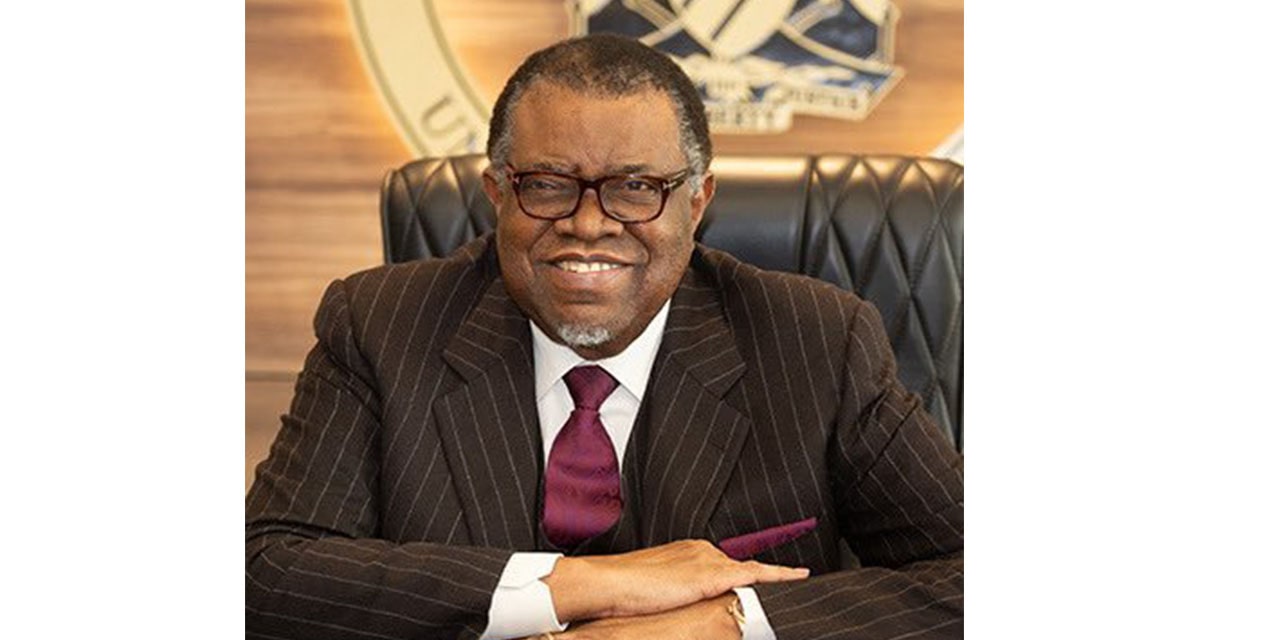Martin Enjala
President Hage Geingob has urged the International High-Level Panel on Water Investments for Africa to mobilise US$30 billion annually for water investments by 2030.
Speaking at the 78th Session of the United Nations General Assembly in New York, Geingob highlighted that Namibia recently released a report titled “Africa’s Rising Investment Tide: How to Mobilise US$30 Billion Annually to Achieve Water Security and Sustainable Sanitation in Africa.”
The Namibian leader emphasized that the report provides clear strategies for marshalling the resources needed to meet Africa’s goals on water security and sustainable sanitation.
“As leaders, we must bridge the water investment gap in Africa. This isn’t solely about the water-related Sustainable Development Goal targets but also about enabling Africa to realize her broader developmental objectives. It’s imperative to understand that there can be no development without water,” he said.
The President stressed the undeniable human right to water access and emphasized that sanitation is integral to human dignity. Therefore, it is the collective duty of leaders to secure the necessary funds, especially for Africa and other emerging economies.
Pointing to the ongoing climate crisis, with its evident effects like droughts, floods, wildfires, and changing water cycles, Geingob noted these disturbances make a consistent water supply harder and costlier, especially for nations like Namibia, the driest in sub-Saharan Africa.
He expressed concern over the inadequate funding to combat climate change and its effects on the water cycle. Moreover, Geingob noted the difficulty middle-income nations like Namibia face in accessing affordable funding, a predicament exacerbated by classifications based solely on Gross Domestic Product. He believes this one-dimensional classification overlooks the nuances of economies and poses a significant challenge, especially when 70% of the global poor reside in middle-income countries.
However, Geingob also highlighted the strides Namibia has made in securing funds for water projects. He cited examples, including a N$1.9 billion loan from the African Development Bank and a combined loan and grant of 125 million Euros from the German Development Bank (KfW).
Reiterating Namibia’s commitment to Sustainable Development Goal Six (SDG 6), which focuses on ensuring clean water and sanitation access for all by 2030, Geingob announced that roughly 94 percent of Namibians currently have access to safe drinking water.
“To address the remaining six percent, the government has crafted programs primarily targeting the rural populace, who often grapple with direct water access. He emphasized that, as outlined in Article 100 of the Namibian Constitution and the Water Act of 2023, the government is mandated to manage and allocate water for domestic, agricultural, and industrial uses across both urban and rural regions,” the President said.




